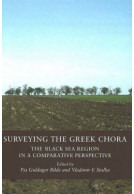Google Books previews are unavailable because you have chosen to turn off third party cookies for enhanced content. Visit our cookies page to review your cookie settings.
Evolutionary Ecology of Plant-Plant Interactions (Paperback)
An Empirical Modelling Approach
Imprint: Aarhus University Press
Pages: 151
ISBN: 9788779341166
Published: 20th December 2005
Script Academic & Professional
Pages: 151
ISBN: 9788779341166
Published: 20th December 2005
Script Academic & Professional
You'll be £15.00 closer to your next £10.00 credit when you purchase Evolutionary Ecology of Plant-Plant Interactions. What's this?
+£4.99 UK Delivery or free UK delivery if order is over £40
(click here for international delivery rates)
Need a currency converter? Check XE.com for live rates
(click here for international delivery rates)
Need a currency converter? Check XE.com for live rates
By Working at the intersection of ecology and evolutionary biology, evolutionary ecologists tend to rely on the dominant mathematical models from one of the two parent fields. Yet these transplanted models have their shortcomings. On the one hand, the frequency models used in evolutionary biology have a hard time accounting for certain factors (like resource limitations) that are central to many ecological problems. On the other hand, there is a strong tradition in ecology, especially plant ecology, to eschew mathematical models altogether in favour of qualitative description. Even when such a model is used, it is too often an inappropriately applied standard linear model. The result has been a call for simple models that enable greater biological and environmental realism than heretofore -- models that will allow for more rigorous testing of hypotheses and more accurate predictions. Such predictions are increasingly in demand not only in the scientific pursuit of plant ecology, but also in public policy applications, such as conservation management and the risk assessment of genetically modified organisms. This volume seeks to address this need by presenting several simple empirical models that have proven invaluable to quantitative and statistical analysis in evolutionary plant ecology. Moreover, it provides conceptual links among the various models, e.g. describing the underlying ideas and relative strengths of plant-size explicit modelling and mean-field modelling. The overall approach is empirical rather than mechanistic, acknowledging at the same time the sedentary nature of most plants and the central role of neighbouring plants.
Other titles in Aarhus University Press...










